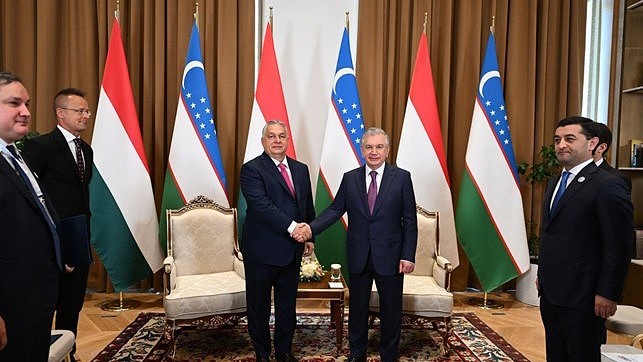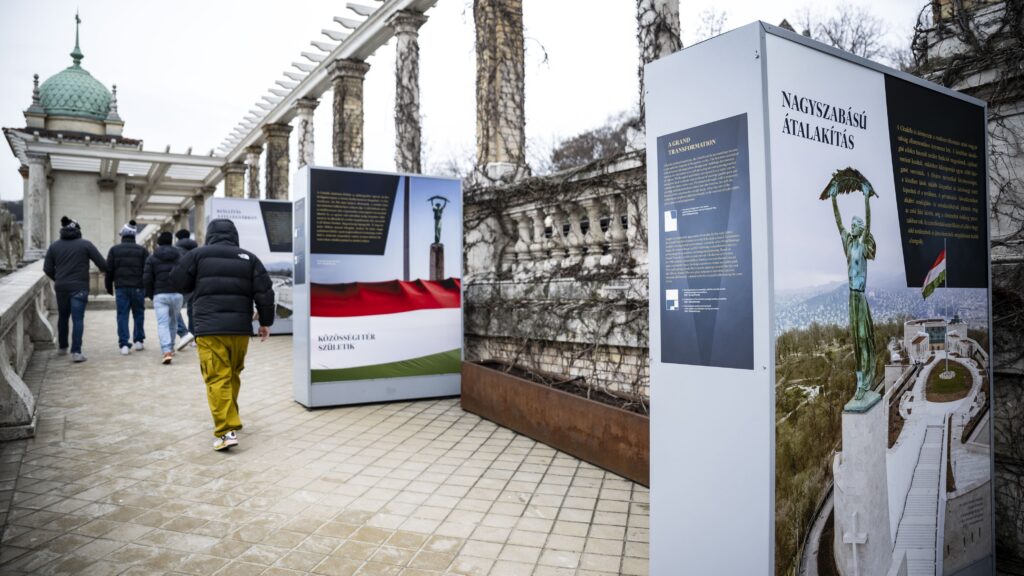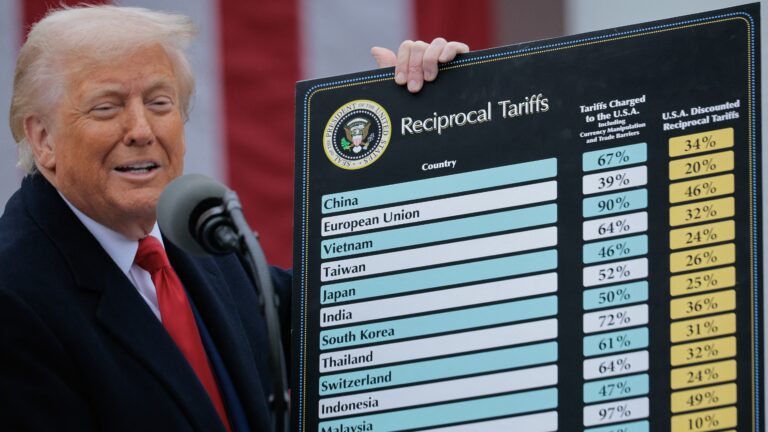The next informal summit of the Organization of Turkic States (OTS) is taking place in Hungary this May. This event attracts the attention not only of the Organization’s member states but also of the international community, given its growing influence on the world stage.
New Horizons of Mutually Beneficial and Practical Cooperation between the OTS Countries
The OTS member states consider the format of cooperation within the framework of the Organization as one of the strategic vectors for the development of multilateral ties. In recent years, the dialogue between OTS members has received significant development impulses, as evidenced by institutional strengthening, expansion of areas of cooperation, and growth in economic indicators.
Today, within the framework of the OTS, cooperation has been established in 35 key areas, ranging from trade, economic and transport–transit relations to space research.
Firstly, the OTS, by uniting countries with high economic potential, provides an opportunity to strengthen economic integration and diversification. The Turkic states are interested in expanding mutual trade relations, using the platform of the OTS to develop foreign trade and attract investment.
The volume of trade between the OTS countries has grown from $30.9 billion in 2022 to $45 billion in 2024. Over the past four years, the combined GDP of the association’s participants has increased by 20 per cent ($1.6 trillion), while foreign direct investment has grown by 22 per cent.
In 2023 the Turkic Investment Fund was established with a capital of $500 million. In February 2025 the OTS countries agreed to increase the authorized capital of the Fund to $600 million. The capital increase was due to the accession of Hungary to the Fund, as well as support for mutual investments, development of entrepreneurship and stimulation of innovations. At the same time, the establishment of the Turkic Green Finance Council and the Council of Central Banks of the Organization’s member countries in 2024 strengthened the financial instruments of the OTS.
‘Turkic countries have unique geographical advantages, which, with proper infrastructure development, can significantly strengthen their role in the global economy’
Secondly, the OTS countries are located at strategically important intersection points of various transportation routes, which makes them central participants in interregional transportation and logistics networks. Turkic countries have unique geographical advantages, which, with proper infrastructure development, can significantly strengthen their role in the global economy. Thus, the volume of cargo transportation along the Middle Corridor increased by 62 per cent in 2024, reaching 4,5 million tons. It is planned to increase the throughput capacity to 10 million tons of cargo per year by 2027.
In this context, strengthening transport and communication connectivity is of strategic importance for the intensification of trade between the OTS countries and their partners, as well as for integration into international transportation networks. At the same time, the development of multimodal routes (Middle Corridor, China–Kyrgyzstan–Uzbekistan, Trans-Afghan Corridor, etc) passing through the OTS countries to the markets of neighbouring regions—Asia–Pacific, Europe, South Asia, Africa—becomes an important factor in achieving common economic prosperity within the Organization.
In recent years, the OTS countries have been actively working on the creation and development of transport infrastructure, improvement of transit services and expansion of cooperation in the field of logistics. In 2024 the Alliance of Logistics Centers and Cargo Carriers was established under the auspices of the OTS to promote the development of freight and logistics centres in the member countries. In January 2025 the Union of International Road Carriers Associations was established to improve road transportation, address potential problems, and boost trade in the region covered by the OTS.
In addition to this, the parties are working on a project to create a Council of Railway Administrations under the OTS with a centre in Tashkent. This will help strengthen transport interaction, reduce transportation costs, increase the volume of transit goods and improve logistics processes.
Thirdly, energy cooperation between the Turkic countries is one of the key areas of their interaction. In recent years, the OTS countries have intensified cooperation in the energy sector, including the implementation of the tasks outlined in the ‘Turkic World Vision — 2040’ and the ‘Programme on Energy Cooperation for 2023–2027’.
Transferring the energy cooperation of the OTS countries to a more technological and sustainable basis, with an emphasis on energy diversification and the development of renewable energy sources, is of great importance for improving the energy security of the region.
In connection with this, the topic of ‘green energy’ and environmental sustainability is increasingly important on the global agenda, and the OTS countries are actively involved in this process. The development of sustainable and environmentally friendly technologies aimed at reducing carbon emissions has not only environmental but also economic significance, as it opens up new opportunities for the export of clean energy, attracting investment. Thus, one of the successful examples in this area was the signing of an agreement on a strategic partnership in the field of ‘green energy’ between Uzbekistan, Kazakhstan, and Azerbaijan, covering the development and transmission of ‘green energy’ to consumers from third countries, including EU countries. At the same time, the parties plan to lay a deep-sea cable along the bottom of the Caspian Sea. Recently, Uzbekistan, Kazakhstan and Azerbaijan signed a memorandum of understanding with the Asian Development Bank and the Asian Infrastructure Investment Bank to promote the Caspian Green Energy Corridor.
The Role of Uzbekistan in the Development of Multilateral Relations in the OTS
Tashkent, having become a full-fledged member of the OTS, plays an important role in activating and increasing interaction between Turkic countries. In recent years, Uzbekistan has raised the status of relations with all the participants of the OTS to the level of strategic relations with Turkmenistan and Hungary, a comprehensive strategic partnership with Turkey and Kyrgyzstan, and an alliance with Kazakhstan and Azerbaijan.
Without any doubt, the transformation of this association and the enrichment of its agenda were greatly facilitated by the active position of Uzbekistan to strengthen comprehensive ties with the Turkic states and the practical initiatives of President Shavkat Mirziyoyev within the Organization.
‘Uzbekistan…is of strategic importance for strengthening the economic potential of the OTS’
In particular, Tashkent put forward about 80 specific proposals aimed at further developing multilateral interaction within the Organization.
The OTS summit, held in Samarkand on 11 November 2022, played a crucial role in strengthening multilateral cooperation within the framework of the Organization. A landmark event of the Samarkand summit was the adoption of ‘The OTS Strategy 2022–2026’, which became the first road map for the implementation of the concept of development of the Turkic countries’ ‘Turkic World Vision — 2040’.
In addition, at the initiative of the President of Uzbekistan, the ‘Charter of the Turkic World’ was developed and adopted, reflecting the unity and cohesion of the Turkic peoples, their great past, rich culture and original values.
The proposal of the Head of Uzbekistan to adopt the Treaty on Strategic Partnership, Eternal Friendship and Fraternity of Turkic States will also create a solid foundation for further cooperation and integration in various spheres in the OTS. It is important to emphasize that Uzbekistan, being one of the largest economies of Central Asia, is of strategic importance for strengthening the economic potential of the OTS.
In this context, the President of Uzbekistan’s initiative to establish, within the framework of the OTS, a ‘space of new economic opportunities’ fully aligns with the goals and objectives set for the Organization, ensuring the free promotion of trade, investment, and services.
The Leader of Uzbekistan has also taken initiatives to develop multimodal transport routes and transportation services in the OTS. In the near future, it is planned to stimulate innovations in customs operations in the OTS space through the use of modern digital tools (e-TIR, e-Permit and e-CMR), as well as the liberalization of transit passes and simplification of administrative procedures.
The development of transit corridors and the implementation of joint logistics infrastructure projects are key strategic components of cooperation within the OTS. In this regard, the joint development of the Middle Corridor is taken into account, which allows diversifying the transit of goods from China to Europe and back.
‘The development of transit corridors and the implementation of joint logistics infrastructure projects are key strategic components of cooperation within the OTS’
At the same time, the construction of the China–Kyrgyzstan–Uzbekistan railway, along with its integration with other promising transport projects within the OTS framework, plays a significant role in reviving the overland route from China to Europe. This route, which passes through the territories of the Turkic countries, contributes to the development of mutual trade, as well as cultural and spiritual exchange between peoples. Broad prospects also open up with the creation of the Trans-Afghan Corridor, which will provide an entirely new route to the markets of South Asia with a combined population of 1,9 billion people and a GDP of 3,5 trillion dollars.
At this stage, the consolidation of efforts of the OTS countries in the field of digitalization and high technologies is relevant and in demand. At the same time, the proposal of the Leader of Uzbekistan to develop the concept of a ‘Digital Turkic World’ is a strategically important step to deepen ties in this sphere. It is expected to stimulate the exchange of experience in the IT sphere, the development of innovative ecosystems, digital infrastructure and data centres.
In addition, President Shavkat Mirziyoyev’s proposal to establish the Turkic Ecological Council reflects the importance of joint efforts in addressing global environmental challenges.
Such initiatives by the President of Uzbekistan to develop multilateral ties within the OTS demonstrate a visionary approach to seizing opportunities and solving common problems in the Turkic world.
Uzbekistan–Hungary Strategic Partnership: Advancing Multidimensional Ties within the OTS
Hungary, having observer status in the OTG, continues to actively participate in its activities, which allows it to strengthen ties with Turkic countries in various promising directions. Prime Minister Viktor Orbán has repeatedly emphasized that ‘Hungary can offer the OTS countries a link to Europe.’
Promoting the idea of turning Hungary into a bridge between the West and the East, Budapest actively participates in various events and projects within the OTS, regularly allocates educational grants at Hungarian universities for students from Turkic countries, promotes cooperation in the field of trade and investment through its instruments such as Eximbank, the Hungarian Export Promotion Agency and the Hungarian Chamber of Commerce and Industry.
Hungary’s unique position in Europe, as an EU member state, allows it to effectively serve as a bridge between the member states of the two associations. Hungary’s role as a link between the two regions is strategically important for creating sustainable and mutually beneficial ties in the future.
‘Hungary can offer the OTS countries a link to Europe’
In this context, the strategic partnership between Uzbekistan and Hungary is an important area of foreign policy for both countries, which has been actively developing in recent years. Over the past five years, the volume of trade between the two countries has doubled (to $200 million).
At present, the Intergovernmental Commission on Economic Cooperation and the Business Council, established in 2021, are operating effectively. Work is underway to launch an investment fund with the authorized capital of 150 million euros. Large Hungarian companies such as Gedeon Richter, Meditop Pharmaceutical, Inpark, Bonafarm, BDPST Group, Bayer Construct Group, and others are successfully implementing joint projects in the fields of pharmaceuticals, chemistry, electrical engineering, agriculture, and the banking sector.
Despite their different geographical locations, Tashkent and Budapest have found many points of contact, and their cooperation covers a wide range of areas, from economy and trade to culture and education. Uzbek–Hungarian cooperation has also been an important factor for the development of mutually beneficial ties in the context of broader OTS cooperation. Both countries share similar views on the development of multilateral relations within the OTS and recognize the importance of strengthening political, trade, economic, energy, cultural and humanitarian ties.
In the current changing global political and economic environment, the role of regional cooperation is more important than ever. In doing so, the ongoing OTS Summit in Hungary will open new horizons for the OTS region’s development, emphasizing the importance of integration and cooperation in a changing world. Budapest will also play an important role in linking the OTS countries to Europe by providing new trade routes and strengthening the comprehensive partnership between the sides.
Moreover, this summit will provide a platform for OTS states to share best practices, discuss innovative approaches to infrastructure development, digital transformation, and support for small and medium-sized enterprises, as well as expand cultural and educational ties. It will also open new opportunities for establishing partnerships, building trust, and deepening integration among participants, thereby creating a solid foundation for the formation of a more sustainable, interconnected and competitive region of OTS. Thus, the current stage in the development and activities of the OTS shows the demand for this organization, as well as its ability to preserve and increase the overall economic and socio-cultural potential of the Turkic countries.
The principle of multilevel consolidation and integration operating in the OTS area allows each member of the Organization to find its place in it. At the same time, in the future, there will be a tendency towards greater coordination of the efforts of the Turkic countries, especially in trade and economy, transportation and transit, energy, and other spheres. This partnership can create new forms of interaction and improve communication between the OTS countries.
Related articles:







